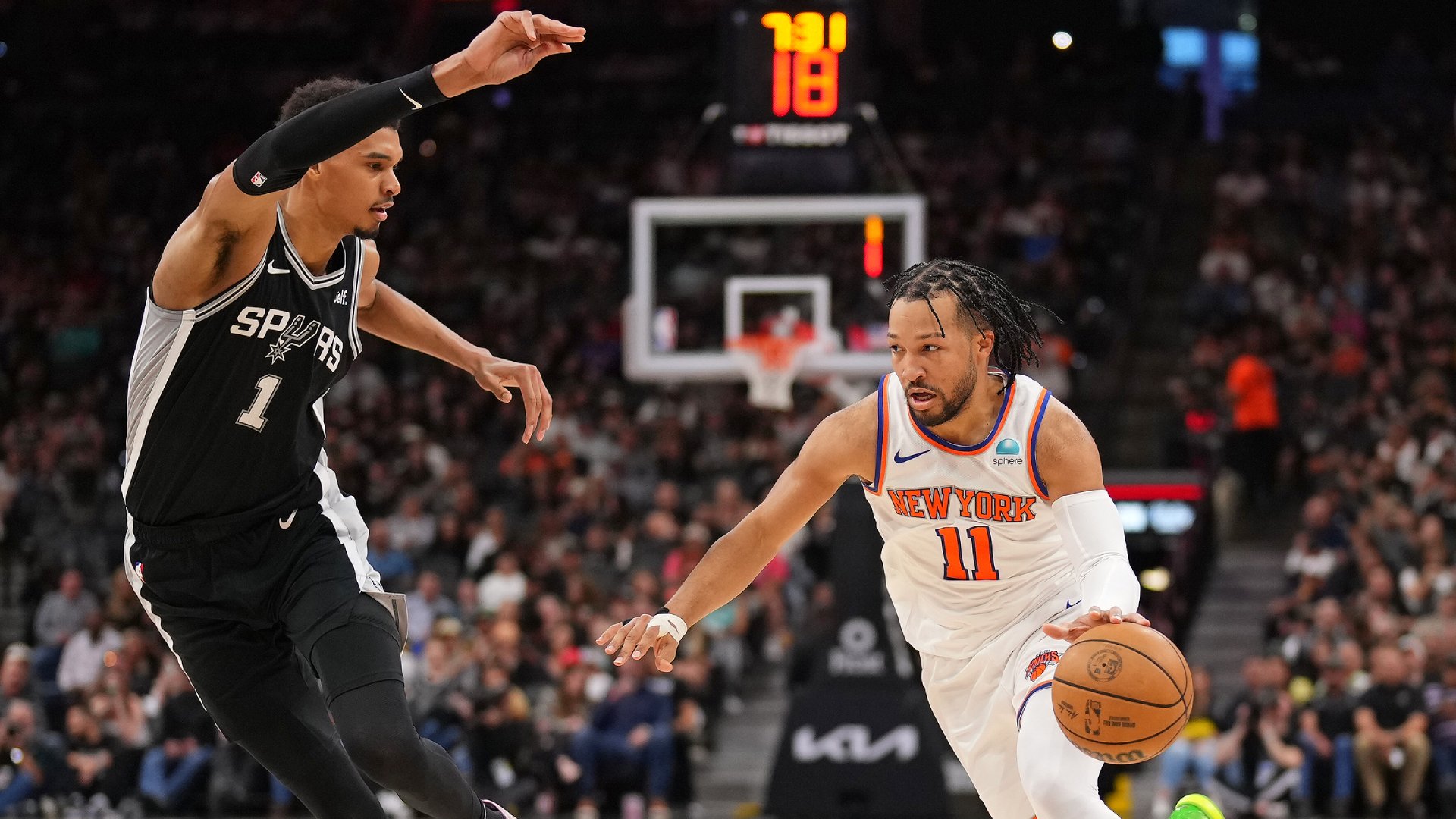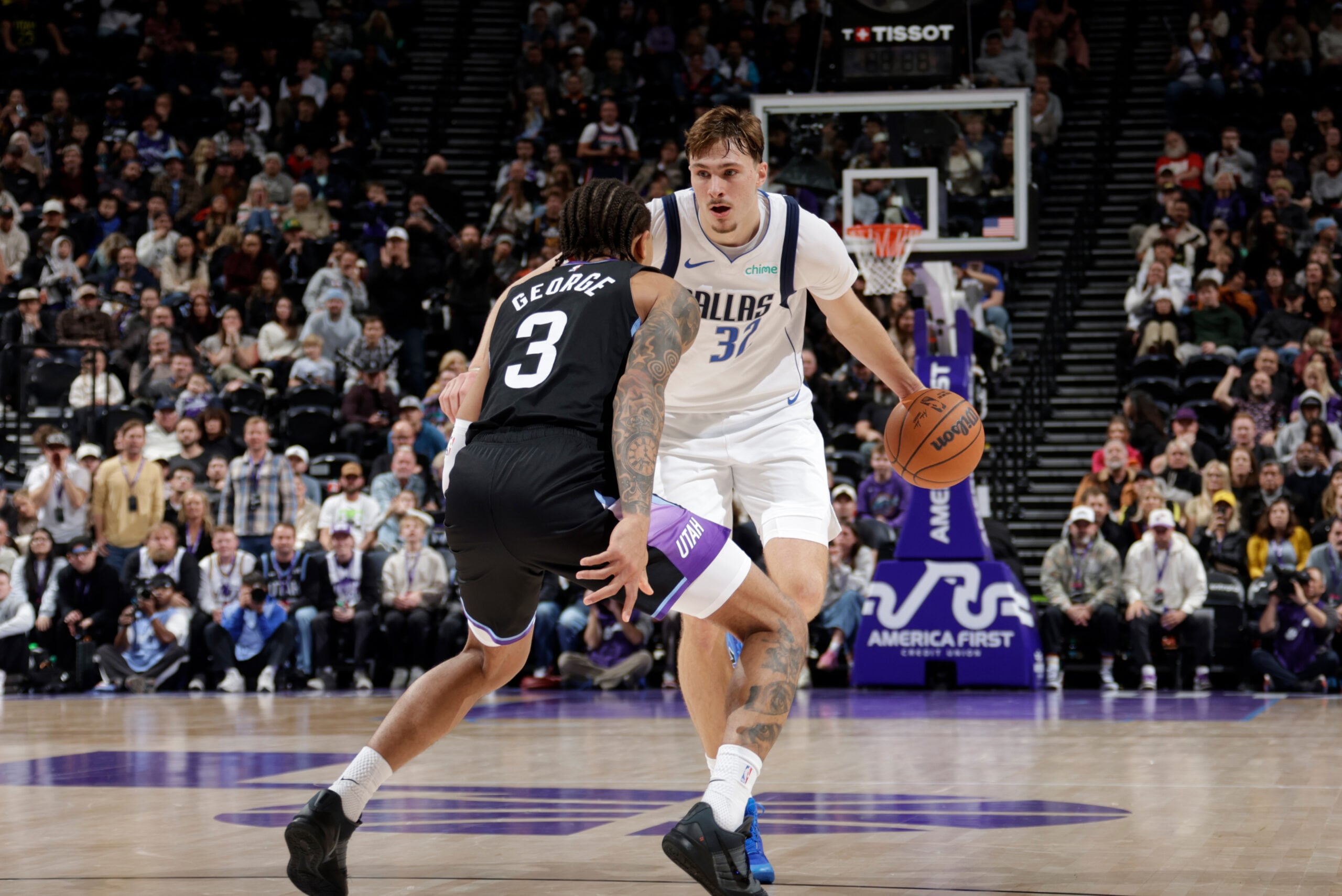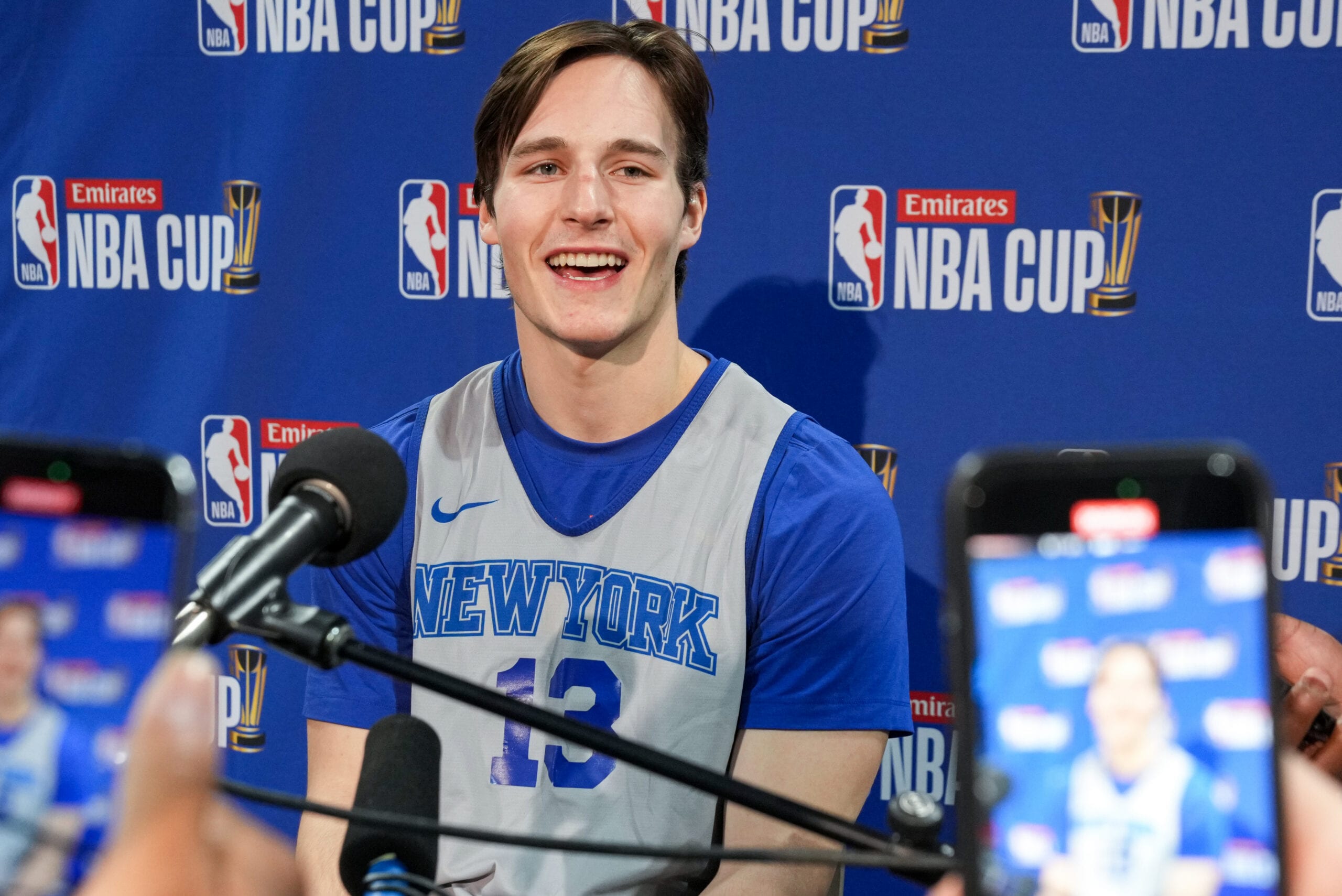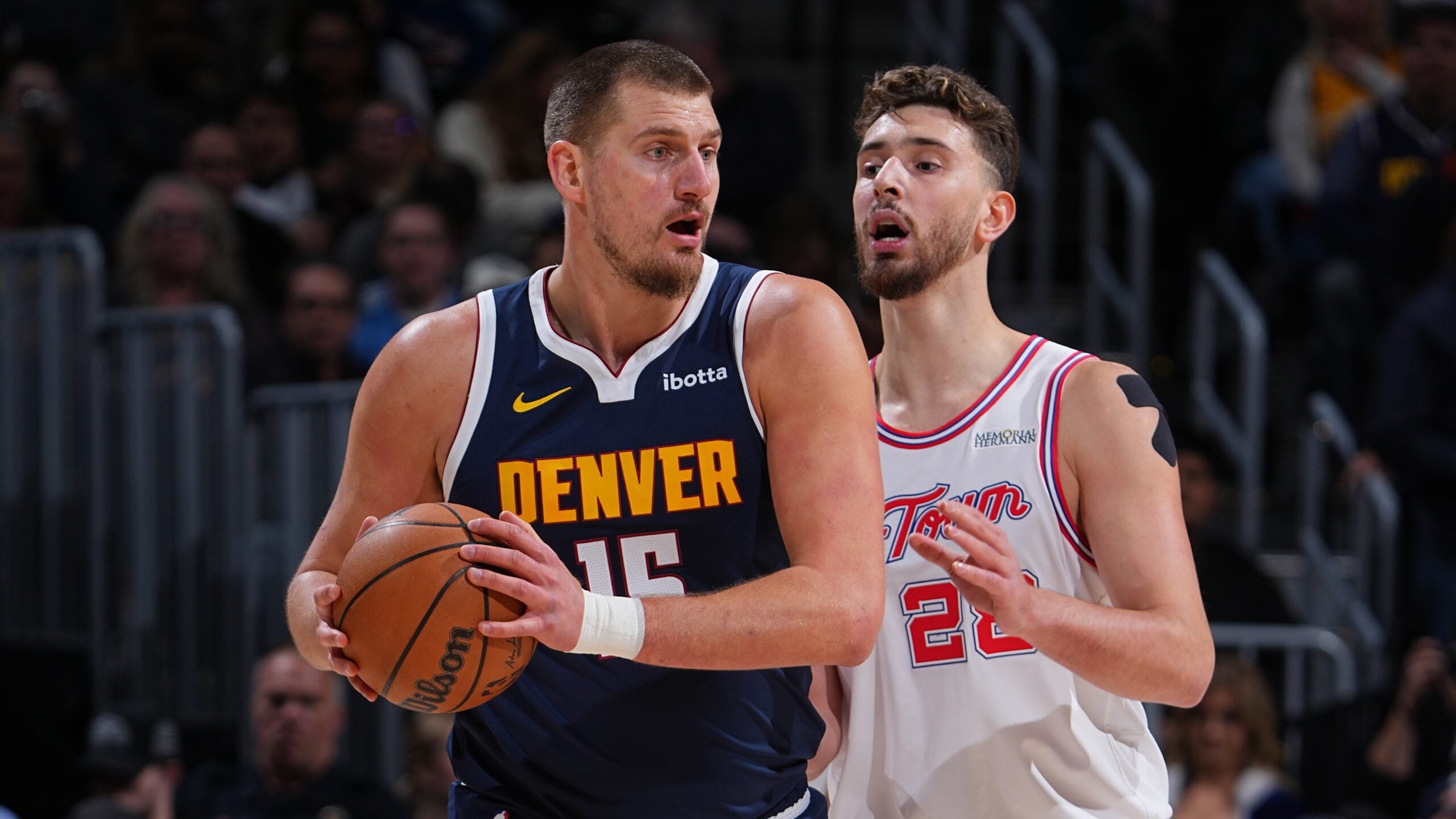For so long, he was so good, and even toward the end, when he wasn’t as good, he was still so interesting, standing tall in the outpost that was freezing Minneapolis, winter after winter. No excuses, no retreat, no whining from Kevin Garnett, ever.
Just sweat and heat and cussin’ and fussin’ and more than a decade of excellence, even as the Commish took draft picks away, and a drunk driver took his touchstone away, and free agency and terrible management decisions took his teammates away, and, at the end, cancer took his coach away.
But he came back at the end because he still thought he had to help the Wolves win.
Garnett’s official retirement video, released on Instagram Friday as the news came that he was done after two decades and 15 All-Star games and 12 all-NBA Defensive teams, and a 2004 league MVP award, was shot not at Boston’s TD Garden — where he won his unforgettable title with the Celtics in 2008 — but at Minnesota’s Target Center, where he played 13 of his 21 NBA seasons.
He said, in Boston, that he should have been a Celtic his whole career, as he understood and revered the history of the game more than most players his age, and you got what he meant. But he was loyal to Minnesota much more than it had any right to ask or expect.
“I’m just not that type of person, that’s gonna bitch and moan about every little thing,” he told me a long, long time ago, during his first stint with the Wolves. “That’s not me. I’m not gonna cry about a situation, I’m gonna try to find a way to make it better. I’m gonna stand up like a man and face it. I’m not gonna run from it. I’m’a be with the Titanic, until they get all the way to the bottom. ‘Cause I can swim. That’s how I look at it.”
He was an era onto himself, the catalyst for momentous change in the NBA.
He heralded the era of high schoolers bypassing college to go straight to the pros when he came out of Farragut Academy in Chicago in 1995. A long line followed him out of their teenage years to the Association before the league and union agreed to shut off the spigot in 2005, but the impact was felt on the court, cutting both ways (Kobe Bryant, Tracy McGrady, si, Ndudi Ebi, Robert Swift, non). Garnett’s ascension as a superstar also forced contemplation: if a 14 year old could play tennis professionally, why couldn’t an 18 year old play basketball professionally? Prodigies are prodigies, right?
While that question, with its racial undercoating, was being contemplated, Garnett also blew a hole in the NBA’s financial mechanics. It wasn’t his fault the league locked the players out in 1999, but his $126 million extension from the Timberwolves in 1997 was the catalyst. Other owners recoiled at the idea they, too, would have to pony up nine figures to keep their star players as Glen Taylor had to do. (Garnett’s deal, adjusted for inflation, would be around $190.5 million today.)
He brought trash talk to a new, creative, profane standard, often screaming at himself as much as the opposition. (The smart opponents, like Tim Duncan, just went down to the other end of the floor.)
And on the court, Garnett invented a new position. Like the Articles of Confederation — the document between the 13 original United States that formally bound them together, in 1781, but which was ultimately replaced by the U.S. Constitution in 1789 — Garnett was a bridge between eras, a spindly hybrid, neither the bruising low-post power forward that preceded him nor the 3-point happy “stretch four” that followed him.
He faced the basket, but shot mid-range jumpers. He posted up some, but did most of his damage above the rim and off a lethal first step. As a result, he was a model of offensive consistency — nine straight seasons averaging between 20 and 24 points per game — though his critics, and there were many, lamented his lack of a supposed “go-to” move at the ends of games.
But his best work was always at the defensive end, where he Hoovered rebounds and was a brilliant maestro for Flip Saunders and his zones, anticipating, understanding, knowing what the other team was going to try and do, and being able to disrupt it with his mind and body, switching onto twos, threes, fours, whoever needed shutting down.
“To me, my favorite defender of all time is DeAndre Jordan,” Chris Webber said on the phone Saturday. “I know that sounds crazy. To me, (Garnett) is the most dominant defender in my time of playing — not Zo, Tim, (Shawn) Bradley, any of them. DeAndre is just a great defensive player. KG was a skinnier version of this guy in an era when centers ran everything. I remember him checking (small forward) Calbert Cheaney the whole game. He was the anchor of the D, but he could anchor it from the point position. It’s not like it was with a guy like John Stockton, where you had to pay attention two players away. He was right there on you. He and Rasheed (Wallace) were the two guys that I saw enjoy defense more than anybody in my life.”
Much of Garnett’s career was tinged with melancholy. As he first became a household name with the Wolves, his teammate and lead guard Stephon Marbury demanded equal pay for equal stardom, and forced his way out of town with a trade. Tom Gugliotta left for Phoenix. In 2000, a drunk driver killed his close friend and teammate Malik Sealy just after Sealy, Garnett and teammates had been together at dinner.
Sam Cassell was there for a minute; Latrell Sprewell rejected an offer that was, in hindsight, the last big one of his career. The Wolves drafted miserably throughout KG’s first stay, and then were docked multiple future first-round picks for illegally agreeing under the table to give Joe Smith a new contract, stripping Garnett of precious young talent that could have supplemented his own.
And even here, Garnett was a pioneer. Before LeBron James went to Miami, it was Garnett’s willingness to go to Boston in a 2007 trade to join Paul Pierce and Ray Allen that formed this generation’s first great superteam, a Celtics squad that was exquisite defensively and had more than enough firepower. The Big Four of KG, Pierce, Allen and Rajon Rondo beat the Lakers down in The Finals worse than they’d been beaten down in a Finals since the Boston Massacre in 1985.
And when Garnett finally won his ring, and went all Edward G. Robinson on Michele Tafoya, CWebb was so hyped himself he broke a vase in his house watching the postgame interview. He felt like KG’s title was for all of those, like himself, who labored for a ring but couldn’t claim one.
The irony was that the two, while fierce competitors, weren’t all that close, though Garnett was known for counseling and helping young players.
“I had a game when he dunked on me and I dunked on him,” Webber said. “And from that moment, it was like we had an agreement that we could like each other, and love each other, but we couldn’t talk to each other. So I didn’t talk to him at all. It was only after I retired that we started talking and texting.”
And at the end, after Boston had run its course and he couldn’t join Doc Rivers in Cali, where he lived and trained during the offseason, Garnett joined Pierce for a cup of coffee in Brooklyn, then finished what he’d started, in ‘Sota, where he accepted a mentoring role for Karl-Anthony Towns and any other zygote that could dribble and post up. But even that assignment was tempered when Saunders fell ill last fall, and then succumbed to cancer in October.
Though Garnett’s relationship with Glen Taylor is good, Taylor handed control of the team to Tom Thibodeau last summer. Thibs and KG have a great and warm working partnership dating back to the Boston days, but Thibs certainly couldn’t promise Garnett playing time this season, and it’s now less likely that KG will be part of ownership when Taylor decides to sell, as he had hoped.
But wherever Garnett winds up, and whatever he winds up doing, he will do it with the passion that made a kid from Maudlin, South Carolina into anything but maudlin as a baller. Here’s to KG, the smiling, snarling, cussing fool, who enveloped all of us into his blast furnace of love for the game, and never asked for or gave a quarter to anyone fool enough to come at him on the floor.
Anything is possible!!!!
MORE MORNING TIP: NBA, players weighing options for athlete activism |Bosh at a career crossroads
Longtime NBA reporter and columnist David Aldridge is an analyst for TNT. You can e-mail him here and follow him on Twitter.
The views on this page do not necessarily reflect the views of the NBA, its clubs or Turner Broadcasting.








